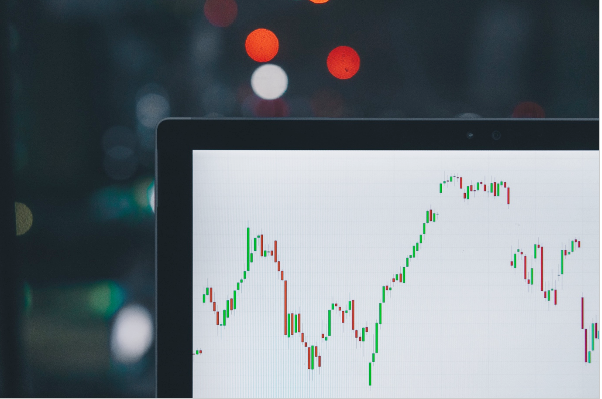Setting up Cayman Islands Investment Funds: The What, Why, and How
Investing in the Cayman Islands has lots of advantages, but what are investment funds, why should you set one up there, and how do you go about it?

Cayman Islands investment funds are hugely popular for a number of reasons, and they’re fairly easy to set up once you know how. 80 percent of the world’s hedge funds are domiciled in the Cayman Islands, which gives you an idea of how popular they are.
Investment funds come in all different shapes and sizes, but many take advantage of the fertile investment ground of the Cayman Islands. Today, we’ll be delving into the details on what they are, explain exactly why they are so lucrative, and give you some advice on how to set one up. If you’re looking for a way to use your savings wisely, this might just be the way to do it…
What are Investment Funds?
Before we get into the details of why and how you set up an investment fund, we’ll quickly go over what they actually are.
An investment fund is supply of capital shared between numerous different investors that is used to collectively buy securities. Each investor retains ownership and control of their own
shares. These funds provide a wide selection of investment opportunities, top-level management, and lower investment fees than any other investment on the market.
With investment funds, the decisions about how the assets are invested isn’t down to the individual investor. Their only input is to choose a fund based on its risks, goals, fees and other factors.
The actual investing is handled by a fund manager who decides which securities it should hold, in what quantities, and when to buy and sell them. The fund can be broad, like an index fund, or narrow and focused, like an ETF that only buys small technology stocks.
What are the Most Common Types of Investment Funds?
There are several different types of investment funds, all with their own individual merits, but we’ll briefly go over the most popular ones, so you know what your choices are.
Mutual Funds
Mutual funds offer investors the opportunity to pool their money with other investors into a single one managed by a professional. The investment funds invest in stocks, bonds or other securities, depending on the fund’s objective.
Exchange-Traded Funds
Exchange-traded funds (ETF) is a vat of securities that trade on an exchange, in the same way as a stock. ETFs often contain different types of investments, including stocks, commodities, or bonds; some offer holdings in the US only, whereas others offer them internationally.
Money Market Funds
Money market funds are a type of mutual fund that invests in cash and cash equivalent securities only, which are often referred to as money market instruments. These funds tend to involve very liquid short-term investments with a high quality of credit. Money market funds usually invest in certificates of deposit, and other such instruments.
Hedge Funds
Hedge funds are the main type of investment fund used in the Cayman Islands. They have a pool of money taken from multiple investors and are managed by a fund manager who tries to maximise profits and reduce risk. No matter how it’s structured, this investment fund is driven by a manager who invests the money into various assets with the purpose of achieving the funds goals.


Why Choose the Cayman Islands to Set up an Investment Fund?
Cayman Islands investment funds are possibly the most lucrative in the world. This is why, in 2008, over 10,000 of them were registered with the Cayman Islands Monetary Authority (CIMA), and 40 of the top 50 banks in the world have offices there.
So, why are so many people setting up funds in the Cayman Islands, and why should you? The benefits of setting a Cayman Islands investment fund include:
- The regulators of the Cayman Islands investment fund market are very adaptable and competent.
- The islands are on the Organisation for Economic Cooperation and Development (OECD) ‘white list’ which means they’re not classified as a tax haven and, therefore, not on the Organisation’s naughty list (blacklist).
- It also has signed tax information exchange agreements (TIEA) with 19 countries.
- The country has a stable economy and flexible investment legislation.
- It has no exchange controls restrictions.
- There’s an abundance of expertise in the investment fund space.
- The Cayman Islands investment fund fee structure is globally competitive, which benefits both the manager and the investor in the launch and ongoing maintenance of the fund.
- Tax neutrality.
To expand on these bullet points a bit, the Cayman Islands has an English Common law legislative system. They’ve also retained a stable social, political and economic climate throughout its history.
It is a tax neutral location as it has no personal, corporate or capital gains tax. What’s more, corporate entities can apply for a tax concession from the Governor in Council to avoid paying tax for 20 years.
A stable economy, low taxes and the wide range of funds available, most of which are managed by some of the top investment experts in the world, is the reason why so many people open investment funds in the Cayman Islands.
How to Go About Setting up an Investment Fund
Now that we’ve established what an investment fund is and why the Cayman Islands is the perfect place to set one up, it’s time to get into the details on how you go about it.
Setting up the Investment Fund
These are the main steps you need to take to start your own investment fund in the Cayman Islands:
- Get into talks with an onshore or offshore law firm to help you draft an offering document setting out the terms of the fund and its shares.
- After that, your legal counsel will prepare the Memorandum and Articles of Association, which are then used to set up the company in line with the offering document.
- It’s then time to incorporate the exempt limited liability company with the Registrar of Companies, and register the investment fund with the Cayman Islands Monetary Authority (CIMA). Most funds (90 percent) are required to be registered with CIMA, and only funds with 15 or less investors are exempt from making filings or paying fees to CIMA.
Once you’ve been through these stages, it’s time to set up the management of your investment fund.
Setting up the Management Company


The management company doesn’t have to actually exist in the Cayman Islands. So, if your investment manager has a company in another jurisdiction, you’re not required to set up a Cayman management company.
If you don’t have an existing management company, the first thing you need to do is get in contact with a Cayman attorney to prepare the Memorandum and Articles of Association. The management company is usually founded as an exempt limited liability company with the Registrar of Companies, and licensed by CIMA under the Securities Investment Business Law, unless you qualify for registration exemption.
Usually, investment management companies try to fall under paragraph 4 of the Fourth Schedule of the Securities Business Law. This requires the company to carry on securities investment business exclusively for these classes of person:
- A sophisticated person.
- A person with high net worth.
- A company, partnership or trust where the shareholders, unit holders or limited partners are made up of one or more of the above people.
- If the investment management company is able to get a CIMA exemption, it doesn’t need to obtain a licence for the company. However, you still have to file a declaration with CIMA that the investment manager is an “excluded person”, and pay the CIMA filing fee.
Those are the main details you need to know; any other specific information will probably come from your legal counsel and CIMA once you get the ball rolling. These points might sound complex but so many people set up investment funds in the Cayman Islands that the whole process has been streamlined, and there isn’t much red tape to go through.
So, What Now?
Today, we’ve managed to cover what investment funds are, the reasons why you might invest in the Cayman Islands, and the main steps you need to take to set one up.
If you’ve read this post and are ready to move onto the next step, get in touch with a legal practitioner to get yourself started. Thank you for reading, and we hope you’ve learnt something new, and are on your way to investing for the first time!




